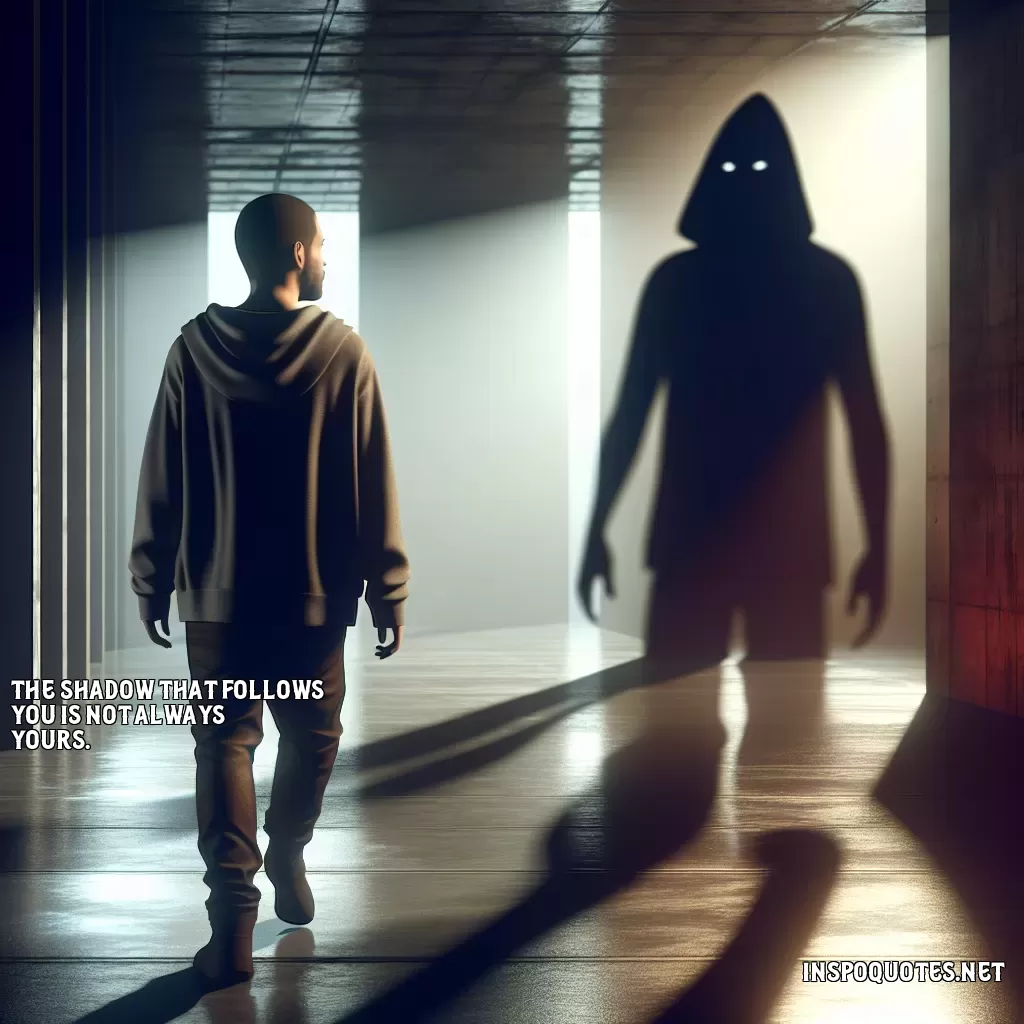
The shadow that follows you is not always yours.
Author: Ruth Ozeki
👁️ 11 views
The quote "The shadow that follows you is not always yours" invites a deep and reflective exploration of personal identity, influence, and perception. On a surface level, it conjures the literal imagery of a shadow, a dark silhouette cast on the ground or a surface, always connected to its source. However, in a metaphorical sense, this statement suggests that not all influences or aspects attributed to us truly originate from within. Firstly, the quote could imply that the ideas, thoughts, or influences we believe are our own may actually be borrowed or imposed by others — a reflection of societal, familial, or cultural expectations. As individuals, we are shaped by our environment, education, and social interactions. Therefore, parts of our identity that we carry forward, much like a shadow, may not be wholly ours but rather a collage of external influences. Secondly, the quote could be interpreted in the context of reputation and perception. The 'shadow' represents how others perceive us, a perception that might not align with our true self. In society, people often cast judgments and form images based on limited information, thus creating a 'shadow' — an external perception or expectation that does not authentically reflect who we are. Lastly, the statement encourages introspection. It challenges us to differentiate between what genuinely constitutes our identity and what might be a mere external projection. The journey to self-discovery and self-awareness involves recognizing and scrutinizing these shadows, understanding their origin, and ultimately defining one's unique essence. This quote effectively underscores the complexities of identity and the external factors that shape our lives, urging us to introspect and discern which 'shadows' belong to us and which do not.
Quote By: Ruth Ozeki
Ruth Ozeki is an acclaimed American author, filmmaker, and Zen Buddhist priest, known for her innovative storytelling and profound exploration of themes such as identity, culture, and the intersections of history and the present. Born on March 12, 1956, in New Haven, Connecticut, to a Japanese mother and an American father, Ozeki’s multicultural upbringing profoundly shaped her literary voice and perspective. She earned her Bachelor’s degree from Smith College and later received a Master's degree in English from the University of Vermont.
Ozeki's debut novel, "My Year of Meat," published in 1998, quickly garnered critical acclaim. The narrative weaves together the lives of a Japanese-American filmmaker and a homemaker in the U.S., exploring the complex themes of cultural identity and the impact of corporate globalization on both food and identity. This novel helped establish Ruth Ozeki as a significant voice in contemporary literature.
In 2003, Ozeki published her second novel, "All Over Creation," which focuses on the agricultural crisis, genetically modified crops, and the dynamics of family and community. The novel received enthusiastic reviews and showcased Ozeki's talent for blending humor with deeply relevant social issues. Through her works, Ozeki encourages readers to reflect on the connections between personal and collective narratives.
Ruth Ozeki’s third novel, "A Tale for the Time Being," was shortlisted for the Booker Prize in 2013 and received widespread acclaim for its intricate structure and the melding of a fictional narrative with reality. The novel explores the life of a bullied Japanese schoolgirl and the author’s own search for meaning across time and space.
In addition to her novels, Ozeki has authored nonfiction works, including essays and memoirs, and has directed several documentary films. She is also a well-respected Zen priest, which informs her work's meditative quality. Ruth Ozeki continues to engage with pressing social issues and remains an influential figure in contemporary literature, inspiring readers with her thought-provoking narratives and compassionate inquiry into the human experience.